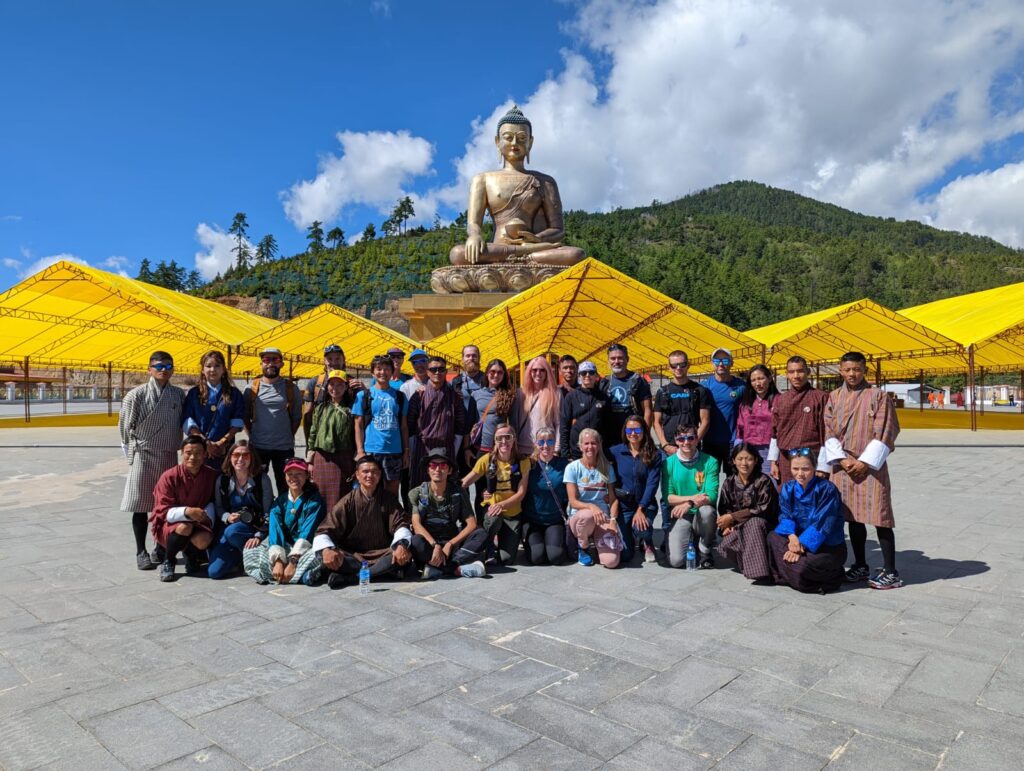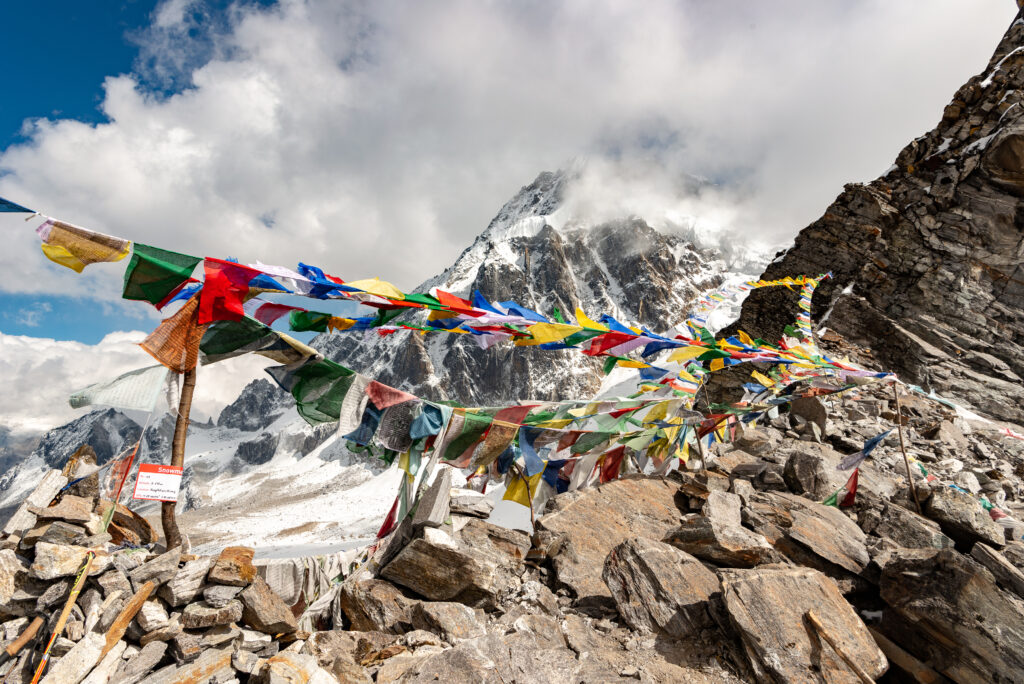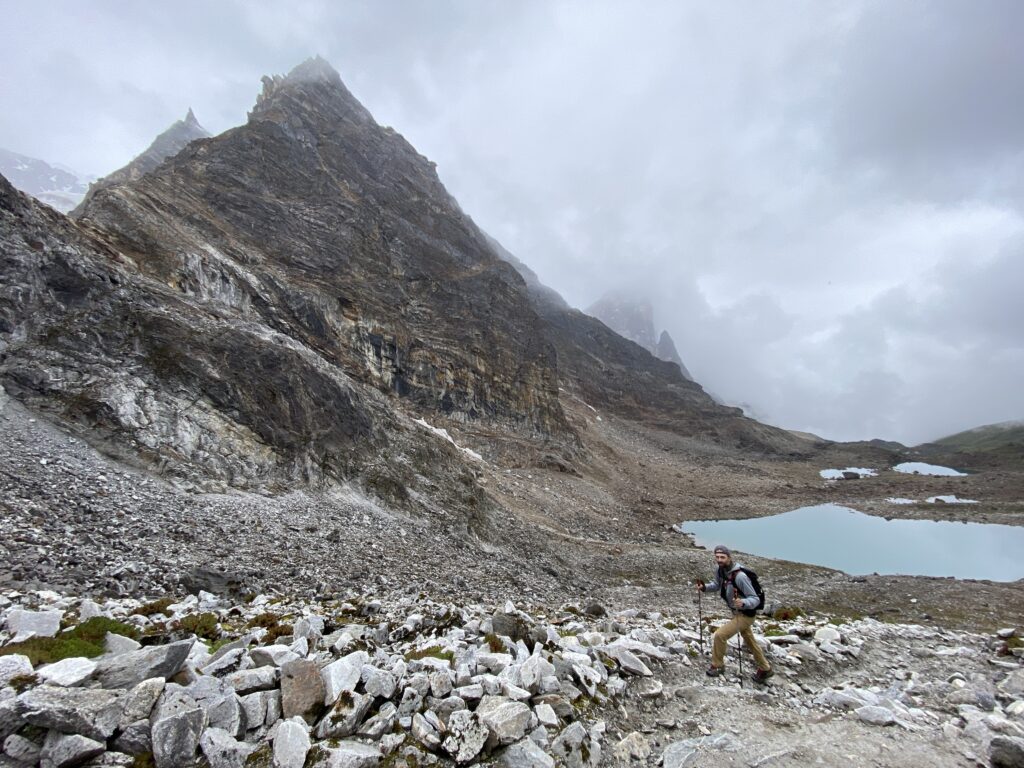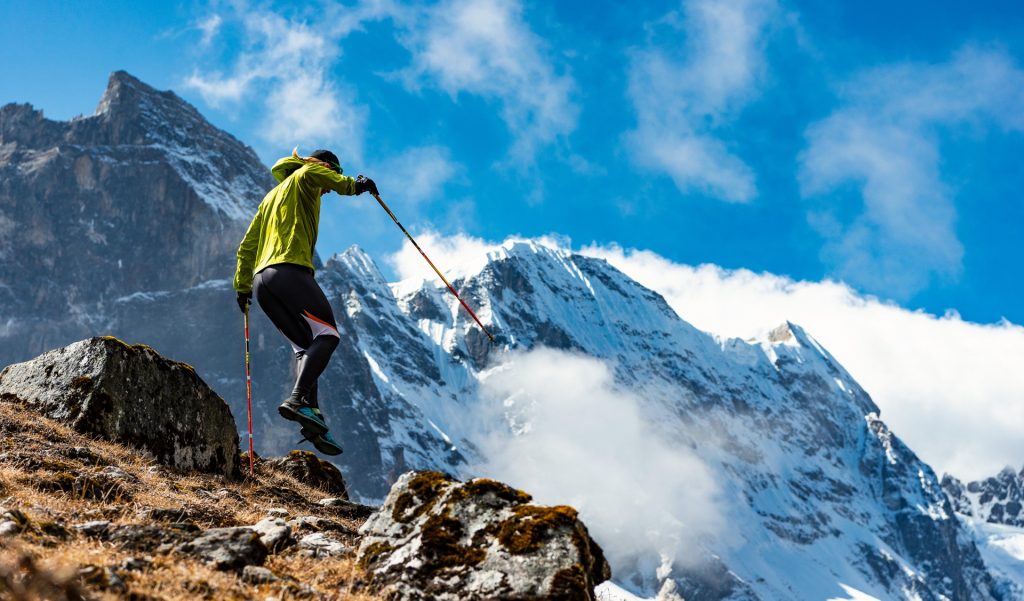The Snowman Race will feature 30 top athletes, including 9 Bhutanese,
who will run 203 kilometres over five days over a gruelling high-altitude course

The Tourism Council of Bhutan (TCB) on behalf of the Snowman Race Secretariat, has announced that the first ever Snowman Race, billed as the world’s most challenging ultra-marathon will take place between October 13 – 17, 2022 in Bhutan. A total of 30 endurance athletes, including nine Bhutanese runners, will compete over 203 kilometres (125 miles) across five days at an oxygen-sparse average of 4,500m (14,800 feet) with the highest point of 5,470 metres (17,946 feet). Dubbed as the world’s toughest race, the trail has been completed by fewer people than have summited Mt. Everest, and normally requires between 20-25 days to complete.
The Race, an initiative conceived by His Majesty The King of Bhutan, aims to generate greater awareness about the climate emergency. Bhutan’s fragile ecosystem makes it highly vulnerable to the adverse impacts of climate change. The country is exposed annually to increasing calamities such as landslides, unpredictable weather changes and a rapidly changing ecosystem.
The race will highlight the alarmingly real effects of global warming, particularly on the planet’s most threatened ecosystems, such as those of the high Himalayas. Bhutan also aims to boost its position as a vocal thought-leader on climate change and continues to promote, results-driven, sustainable development initiatives throughout the country. The event will conclude with a virtual climate conclave to be held the very next day of the final day of the race.

The ultra-marathon will feature athletes from the USA, Canada, Japan, Australia, France, Germany, Singapore, Tanzania, Switzerland, and the United Kingdom, as well as nine from Bhutan. The Bhutanese athletes have been selected through competition and are also provided physical training before the final selection. Similarly, the international athletes have been selected by a team of professionals, who trained themselves under the supervision of the Snowman Race production. All athletes will be acclimatized to the rugged and elevated topography ahead of competing in the Race.
The Race navigates the most challenging trekking route in Bhutan, the Snowman Trail, passing through some of the most stunning areas in the Kingdom including the remote Lunana area; A seldom-visited community of nomadic herders living between glaciers. Competitors will also traverse the base of Gangkhar Puensum, the world’s highest unclimbed mountain (and Bhutan’s tallest peak at 7570m/ 24,836ft).
The route straddles the mountain passes between Gasa Dzong and Chamkhar Town in Bumthang, and in places reaches altitudes of 5470m (17,946 ft). The trail crosses two of the largest national parks in the country, the Jigme Dorji National Park and the Wangchuck Centennial Park. Both represent the most biodiverse areas of the eastern Himalayas and stretch from deciduous forest to ice fields and glaciers, and are home to several incredibly rare and protected flora and fauna.

About Bhutan
Situated in the Eastern Himalayas, nestled between India and China, Bhutan, the world’s first and only carbon-negative country, will host the world’s most challenging ultra-marathon in a first-of-its-kind event. Bhutan is a country of striking beauty. Home to supremely diverse wildlife and the highest unclimbed mountain in the world, access to Bhutan by air only became possible within the past few decades. This has allowed the uniquely rich and special traditions of the Bhutanese people to flourish, leading to a totally vibrant culture and approach to daily life. Famous across the world for its pioneering pursuit of the guiding philosophy of ‘Gross National Happiness’, an alternative approach to 21st century modern life, Bhutan is said to have the happiest people on the planet. The kingdom’s deep respect for their unique natural resources has ensured careful protection and preservation of their environment and its natural resources, contributing to the wellbeing of all who call it home. The course will conclude in the valley of Bumthang for a concluding celebration with the local community.
‘‘Bhutan has always championed climate change and we have globally raised our voice for this cause because we live at great threat from the impacts of climate change. This run and all that it stands for, is symbolic of the challenges we have ahead of us. The next few years will be vitally important in determining the future of our planet and all of its inhabitants. By raising awareness and much-needed funds for the protection of our natural environment, this is one small step in the direction that we all need to move in, together, before we run out of time,” said Ambassador Kesang Wangdi, Chairperson of the Snowman Race Board.
‘‘This is also in line with our tourism reformation vision to maintain Bhutan as a carbon-negative destination, minimize carbon footprints and protect our ecosystem. This is one of our efforts to show that Bhutan is serious about our sustainable pledges and it really matters to us’’, said, Dorji Dhradhul, Director General of Tourism Council and the Head of the Snowman Race Secretariat.
This event is being organized to deliberate on bringing about bold and transformative changes by engaging the global community. The race will also culminate towards country’s effort in sustainable development and inclusive growth as it will also involve the otherwise secluded mountain communities.
Bhutan recently announced that it was reopening its borders to international guests on September 23, 2022 following the COVID-19 pandemic. The country has unveiled a new tourism strategy, underpinned by transformations in three key areas: enhancements to its sustainable development policies, infrastructure upgrades, and the elevation of the guest experience.

Enhancements to Bhutan’s sustainable development policies
Bhutan recently announced that it would raise its Sustainable Development Fee (SDF) from USD 65 to USD 200 per person, per night, which will go towards projects that support Bhutan’s economic, social, environmental and cultural development. The fees raised will fund national investment in programmes that preserve Bhutan’s cultural traditions, as well as sustainability projects, infrastructure upgrades and opportunities for youth – as well as providing free healthcare and education for all. For instance, some of the Sustainable Development Fee funds go towards offsetting the carbon footprint of visitors by planting trees, upskilling workers in the tourism sector, cleaning and maintaining trails, reducing the country’s reliance on fossil fuels and electrifying Bhutan’s transportation sector, among other projects.
As a country that is vulnerable to the effects of climate change (experiencing melting glaciers, floods and unpredictable weather patterns), Bhutan will also be stepping up its efforts to maintain its status as one of only a handful of carbon-negative countries in the world – in 2021, Bhutan sequestered 9.4 million tonnes of carbon against its emission capacity of 3.8 million tonnes.
“Beyond protecting Bhutan’s natural environment, the SDF will also be directed towards activities that preserve Bhutan’s built and living cultural heritage, including architecture and traditional values, as well as meaningful environmental projects. Our future requires us to protect our heritage, and to forge fresh pathways for forthcoming generations,” Dhradhul concluded.
For more information visit www.snowmanrace.org
